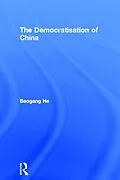The events of 1989, culminating in Tiananmen Square, highlighted the extent to which democratic ideals had taken root in China. Baogang He traces and evaluates the political discourse of democracy in contemporary China, identifying the three main competing models of democratization that dominate current Chinese intellectual trends. Analyzing the political implications of these models the author considers how the theories may be put into practice in order to develop an appropriately Chinese conception of democracy.
Autorentext
Baogang He is a lecturer in the Department of Political Science, University of Tasmania.
Inhalt
Introduction; Part 1 Models of democracy; Chapter 1 The radical model of populist democracy; Chapter 2 The official model of paternalistic democracy; Chapter 3 The liberal model of democracy; Part 2 The liberal model of democracy extended; Chapter 4 Human rights, natural rights and limits on rights; Chapter 5 The problem of evil and redesigning democratic institutions; Chapter 6 The problem of exceptions; Chapter 7 Infusing a rights-based morality into political institutions; Part 3 Preconditions for liberal democracy; Chapter 8 Cultural Conditions; Chapter 9 Social conditions; Chapter 10 Legitimization and democratization in a transitional China; Chapter 11 Conclusion;
